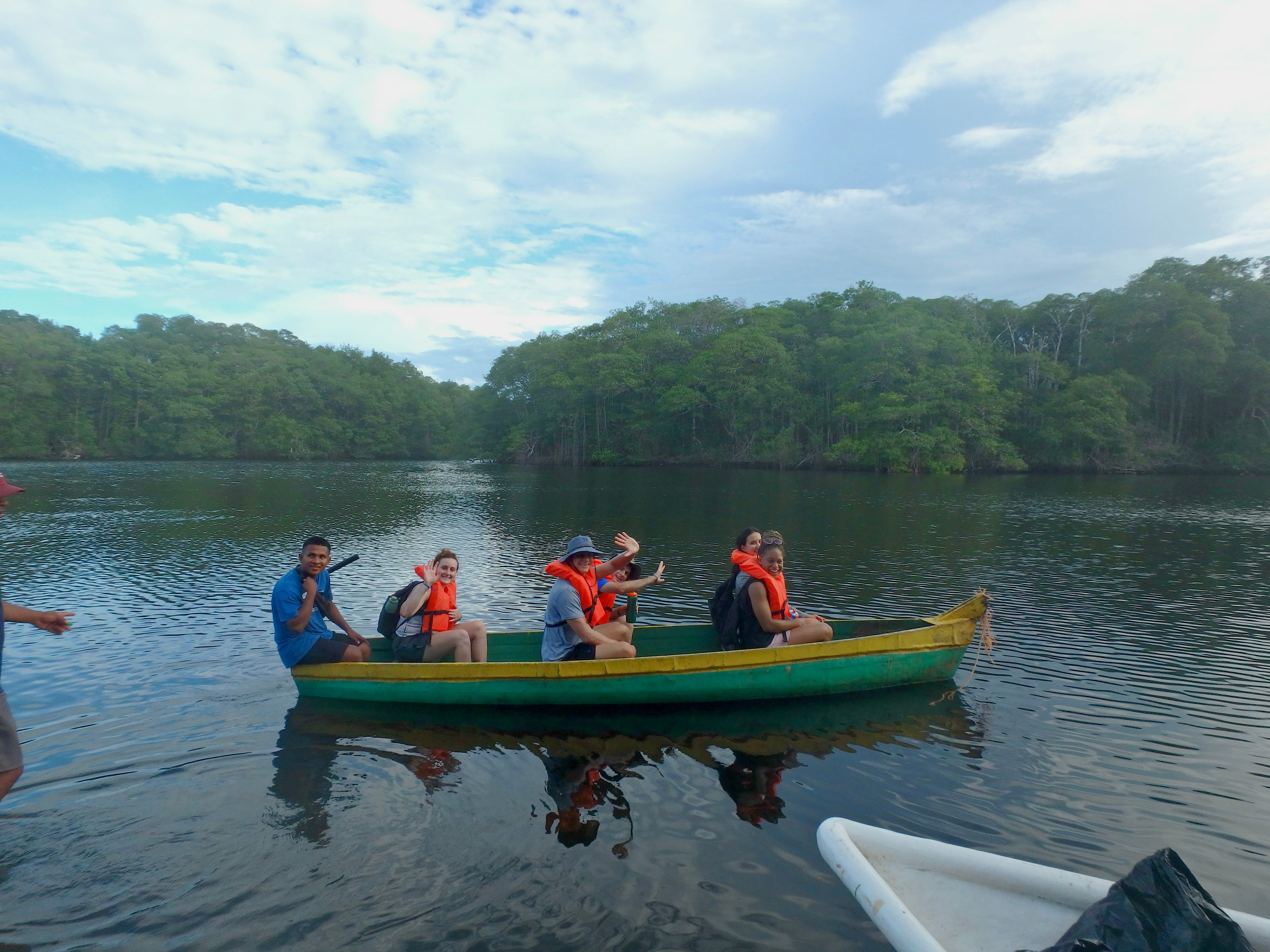Ivy Davis ‘26 had an atypical high school experience. While many high school seniors spent their last few weeks preparing for graduation festivities, Davis was in Budapest, Hungary for the 19th FINA World Aquatics Championships, competing for the United States artistic swimming team. That year, the U.S scored its highest rank in the competition since 2007.
After moving from Arizona to the East Bay as a junior, Davis spent two years training full-time with the U.S. national team, traveling around the world and winning championships. Following her successful high school career, Davis took the opportunity to pursue her education while still competing in synchronized swimming at Stanford.
“It’s been a really big shift after only doing online school and now being in this amazing program with all these driven girls,” Davis said. I’m able to discover different parts of myself after only being synchro, synchro, synchro, for so long.”
Davis’ personal development outside the swimming pool has manifested through her involvement in the broader Stanford athletic community. Yearning for a more culturally enriching experience abroad, Davis decided to participate in the Athletic Civic Engagement (ACE) program, a summer opportunity for dozens of Duke and Stanford athletes to engage in educational, service-oriented experiences around the world during the summer before sophomore year.
Davis was placed in Gandoca, a small town six hours from San Jose, Costa Rica. Davis was no stranger to traveling abroad, but ACE offered a unique cultural immersion Davis had not yet embraced. Reflecting now, she feels that the personal relationships she cultivated with her supervisors and partners, and their shared-cultural experiences, were as rewarding as her service efforts.
“We were completely immersed. I got to practice my Spanish and really connect with these people who were so like-minded to myself,” Davis said. “When I was traveling back then, I was in the pool. This time I was really able to explore, interact, connect, learn — and not just swim.”
During her time in Gandoca, Davis worked with the Sea Turtle Conservation Project, helping turtle hatchlings safely migrate from beaches to the water. The ACE group additionally supported sustainable agriculture and promoted community-based health initiatives through educational programs at local schools.
Beach volleyball player Phoenix Clarke ‘26 participated in the ACE Costa Rica program with Davis. Clarke notes that in addition to fostering relationships with the locals in the community she served, she was able to personally expand her circles by bonding with fellow student athletes.
“Sometimes you just stick with your own sport, but now I have connections [with people] on different sports I would’ve never talked to otherwise,” Clarke said. “I’ve had such interesting experiences and I was really able to form a deeper connection with them.”
Moved by her time spent in Costa Rica, Davis sought to continue building on her worldly perspective through other meaningful avenues of impact abroad. Last summer, she spent two months in India working at the Magic Bus India Foundation, a non-profit implementing programs in schools across the country to provide youth with sustainable futures. Working on donor research and strategic partnerships, Davis was exposed to global nonprofit development and gained an appreciation for mission-driven organizations working in foreign communities.
“Especially at Stanford, we work so hard, but we are given the resources to be successful,” Davis said. “When I visited the schools in India, they could be just as accomplished if given the resources to do so.”
The swimmer said that the humility fostered through years of artistic swimming, a team sport, contributed to her ability to collaborate and connect with local communities during the past two summers, despite cultural and geographical differences.
“Everything I do in the pool is for my team and for other people,” Davis said. “So when I go abroad and do this social work like in Costa Rica, it’s all for the greater good and the bigger picture.
“It’s not the same as swimming, but you have to have the same drive and desire to make everyone else better in order to translate that outside of [the pool],” she added.
Davis’s teammate, graduate student Emmanuella Tchakmakjian, resonates with Davis’ commitment to expand her personal impact outside of the pool. As a sophomore, she joined Cardinal RHED, a campus organization working to de-stigmatize athlete mental health challenges through events and counseling programs. She also joined the Student Health Advisory Committee informing athlete mental health policy on campus.
A witness to Davis’ personal growth through her experiential learning and travels abroad, Tchakmakjian commends Davis’ ability to bridge her radiance in the pool with her hunger to learn.
“I think it’s super cool how she’s been able to bring what she’s learned [at Stanford] to other places, while also being able to learn from those experiences,” Tchakmakjian said, “Coming back, I saw right away how much of a difference she had [in terms of] her empathy, care and coordination. She has this unique ability to see the positivity in every single situation.”
Davis intends to translate these personal discoveries to her involvement on campus. She recently joined Intersect, the student journal for Science, Technology and Society, and is working to establish a Jewish Student Athletes Association to bring community and mentorship for Jewish student athletes at Stanford. Tchakmakjian applauds Davis’ commitment to the greater good, especially on top of the demands that come with being a student-athlete.
“She is an amazing and talented artistic swimmer in general but she really prioritizes other aspects of her life,” Tchakmakjian said. “That shows the depth of her character and strength that she has.”
